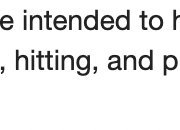Physical violence is an undeniable issue in The Bahamas. Reported events bring shock, fear and disappointment, filling us with questions, self-righteous proclamations and rebuke. In disbelief and grief, we look at the world around us, shaking heads and shrugging shoulders. We see physical violence as separate from us, and completely unrelated to the way we speak with one another. We do not want to make that connection, and that is unfortunate. It exists whether or not we acknowledge or choose to address it.
While it is exciting to finally have platforms — like social media and talk radio — allowing various levels of control, monitoring and contribution, they reveal a societal problem that presents an opportunity. We do not know how to disagree well, and we need to learn.
Disagreement is not inherently bad. It does not need to be rude, unproductive, or life-threatening. It is unreasonable to expect complete consensus on any issue. Even when we agree on the what, we are bound to butt heads on the how. Again, this is not an insurmountable problem. It only requires that we have conversations about points of disagreement and find courses of action to cure the disease we have already diagnosed.
Over the past few days, I have observed activity on a few Facebook threads. I considered the amount of time and energy wasted on arguments that really had nothing to do with the matter raised, and almost seemed to intentionally detract from the valid points being made. This happens every day, multiple times per day, but for what reason? Do people just love to argue? Do we like to make each other feel stupid? Is it a game for some of us, trying to see how quickly and easily we can derail a conversation?
Have you ever witnessed a conversation involving people who are in agreement, but they don’t know it? One person says the sun is hot, and the other says they are hot because of the sun. They make the same point in different terms and somehow come to the conclusion they are on opposing sides. They argue about the importance of vitamin D, while you stand there wondering why this happened. You want to explain to them they are saying the same thing, but it is too far gone now. One of them is google searching alternate sources of vitamin D to prove it may be worthwhile to get sunburn because vitamin tablets are too expensive. You have to walk away.
On Saturday, someone posted about mosquito fogging. What chemicals are they using? Are they harmful to people? Is there a schedule so we can close our windows and plan to be indoors or out of the area? She explained the reasons for her concern and many people agreed. It was not long, of course, before people showed up to suggest we are all either ungrateful or confused.
Here’s a typical example: “I saw at least 20 posts last week complaining about mosquitoes. Now they doing something and there’s complaining about that. Can we ever please Bahamians?”
Some people on the thread figured we all just hate the government, and nothing they do will be right in our eyes. “It’s six of one and half dozen the other. Mosquito-borne illness or chemicals. Can’t win for losing.”
The original poster did not explicitly state she was against fogging. Her post made it quite clear she was not a fan of chemicals, but especially unknown chemicals. How is it that people decided she was completely opposed to fogging? Maybe she would like to be free of mosquitoes and be sure she is not being poisoned at the same time. Too much to ask?
As a person who does not like mosquitoes and would rather not be poisoned, I find her position quite reasonable. As someone who generally keeps the windows open and goes running, I agree a schedule would be helpful and the government should not have to be asked for it. This is not the same as ingratitude.
If no one asks the questions, clearly no individual, department, or ministry of the government will make this information available. They can please this Bahamian — and probably the one who asked the question on Facebook — by doing something about the mosquitoes and telling us what that is and how we will be affected. That is really not something to argue about, but if there is disagreement, it should be about that central point. Someone wants to know what is being used and, subsequently, inhaled by human beings.
In recent weeks, Paul Ratner’s article on Paul Graham’s “How to disagree” essay has been circulating on social media. It includes a pyramid that ranks the ways people engage when in disagreement. At the highest level is refuting the central point. Toward the middle are counterargument and contradiction, and name-calling is at the bottom.
Also included, near the bottom, is tone policing. This is a frequent practice, particularly when a member of a marginalised community speaks on an issue affecting them and their community. Dominant groups are quick to say they are angry or using the wrong approach. Suggesting the central point is of no import or consequence does not even make the cut.
Graham says, though it may feel like it, we are not actually getting angrier. Disagreement just gives us more room to talk and, quite obviously, we all want to be heard. Even if we truly disagree, it is important we do it well. If you have a different point of view, make sure you can refute the central point of the person’s argument.
Unless you have a problem with the government informing citizens of the chemicals used for mosquito fogging and have a counterargument, it does not make sense to post in disagreement. You may not like the tone of the post or the person posting. You may think the topic is silly. You may think something else matter more. None of these are valid arguments.
Sometimes people get into defence mode because they feel attacked, even when their names have not been called. They feel the need to set the record straight.
On Tuesday morning, I read a horrifying story by a woman who was given the run-around on the day she gave birth to her second child at Princess Margaret Hospital. PMH wrongfully forced her to go to the public ward when she told them she had already paid for private. This resulted in her private doctor not being able to deliver her baby, and her husband not being allowed in the room. In addition, she was not given anything for pain, so almost nothing went according to her birthing plan.
In her post, she pointed out the issues with PMH administrative practices and encounters with rude, uncaring nurses. While most people sympathised and encouraged her to take further action, a number of nurses felt the need to defend themselves and their profession. They said all nurses are not like that, most nurses are kind and caring but that a few bad nurses make everyone look bad. That may be the case, but is that what the original poster needed to read in response to her story? No. Could it completely derail the important conversation? Yes.
Everything does not have to be an argument. We do not always have to disagree, but when we do, let’s do it well. Let your argument stand on its own. Do not disrespect other participants in the conversation, or distract them from the central point. Focus on that central point, and take it down with supporting material. Communication does not have to be a problem, and disagreement does not have to end in violence. We have to argue better.
Published by The Tribune on April 4, 2018.











Leave a Reply
Want to join the discussion?Feel free to contribute!